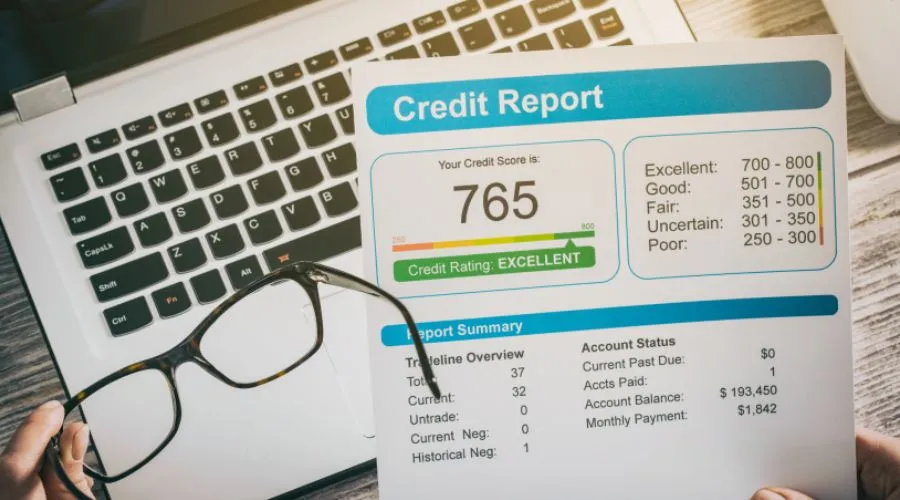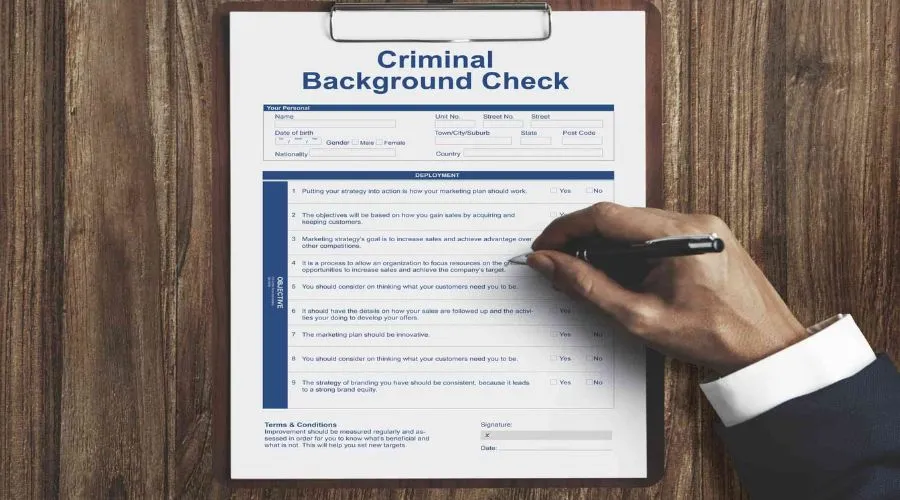It's important for landlords to know Georgia tenant screening laws. This helps reduce risk and protect their rental business. From credit and eviction checks to application fees and deposit rules, the process can feel complex. With LeaseRunner, property owners access dependable tenant screening tools. They also gain legal insights to stay compliant and make smart leasing choices.
Overview of Tenant Screening Laws in Georgia
For landlords in Georgia, tenant screening is one of the most important steps in the rental application process. Evaluating potential tenants helps property owners lower risks. This can include issues like late payments, lease violations, or expensive evictions. Georgia tenant screening laws combine state and federal rules. Landlords keep flexibility, while tenants remain protected from unfair treatment and discrimination.
Georgia takes a lenient approach to screening. Landlords can set many of their own criteria. However, federal laws like the FCRA and FHA set strong safeguards for transparency and accountability. They also ensure equal housing opportunities. Below, we outline the major regulations shaping tenant background checks in Georgia.
Fair Credit Reporting Act (FCRA)
The FCRA governs how consumer reports are used during the tenant screening process. Landlords must:
- Obtain written consent before requesting credit or background reports.
- Provide an adverse action notice if they deny housing based on screening results.
These requirements help make things clear. They cut down on mistakes in decision-making. Plus, they allow tenants to challenge wrong information. Landlords can also review a guide on what a tenant screening report includes for clarity. This aligns with Georgia background check rules that emphasize accuracy and fairness.
Fair Housing Act (FHA)
The FHA, enforced by HUD, bans housing discrimination. This includes discrimination based on race, color, religion, national origin, sex, disability, or familial status. Landlords can't have blanket bans that hurt protected groups.
For example, they can't reject all applicants just because of a criminal history. Under Georgia rental application laws, there is federal protection. This means applicants get fair treatment during the rental process.
Georgia Fair Housing Law
Georgia’s Fair Housing Law (O.C.G.A. § 8-3-200 et seq.) mirrors the FHA by prohibiting discriminatory practices in housing. It also needs reasonable accommodations for tenants with disabilities. This includes service animals and accessible modifications. For landlords, this law highlights the need to apply screening criteria consistently. They must also avoid practices that create a disparate impact.
Georgia Landlord-Tenant Act
The Georgia Landlord-Tenant Act sets basic rules for rental relationships. However, it does not specify strict procedures for tenant screening. Landlords may check income, rental history, and references before approving applications.
Allowable Tenant Screening Criteria in Georgia
Tenant screening in Georgia is more flexible than in states with strict rental housing rules. This flexibility allows landlords to set their own standards, but also demands careful compliance. To avoid discrimination claims, landlords must ensure practices align with the FHA and FCRA. Understanding Georgia tenant screening laws is key to applying these standards consistently.
Written Screening Policy Requirements for Landlords
Georgia does not require landlords to create a written screening policy. Still, attorneys and housing professionals strongly encourage this best practice. Having a documented policy helps ensure fairness, consistency, and legal protection. A good policy should:
- Define clear, objective screening criteria applied equally to all applicants.
- Explain the methods of verification (credit checks, rental history, income proof).
- Set minimum thresholds for approval, such as credit score benchmarks or income levels.
This ensures fairness and helps landlords defend against disputes. It also clarifies the rental requirements in Georgia for tenants before they apply. With a clear policy, landlords can show compliance with both federal rules and Georgia tenant screening laws.
Credit & Rental History
Landlords can ask for credit reports and rental histories. This helps them check a tenant's financial reliability. Under the FCRA requirements, landlords must obtain written consent before pulling reports. Many landlords set minimum credit scores—often around 600—as part of their decision-making. However, criteria must be applied consistently and without discrimination.
Rental history checks help reveal patterns like late payments, damages, or broken leases. This connects with what landlords do look for in a background check, giving tenants insight before applying.

Income Verification
Confirming income is another standard part of the screening process. Georgia landlords often ask applicants to prove their income is 2.5 to 3 times the monthly rent. Acceptable proof may be pay stubs, W-2 forms, tax returns, or employer letters. Landlords can verify this information through LeaseRunner’s income verification and cash flow report.
This forms part of the requirements to rent a house in Georgia, ensuring affordability and reducing risk. Income checks help assess affordability and protect landlords, as long as they respect tenant rights and privacy laws. For guidance, see how to verify tenant income and rental verification. The act reinforces habitability standards and notice rules, supporting fair screening and preventing disputes.
Eviction Records
Checking eviction filings is common in rental house background check practices. Court records are public, and landlords can check whether applicants have a history of nonpayment or lease violations. Tenants also have the right to review their own file by checking their tenant screening report.
Still, landlords must evaluate the age and context of eviction cases. Denying a tenant for an old or unrelated eviction could raise fair housing concerns.
Criminal History
Background checks on criminal history are allowed under Georgia tenant screening laws. However, landlords should avoid blanket bans. HUD guidance under the FHA warns against rejecting applicants for minor or non-violent offenses. Landlords should focus on recent convictions related to property damage, safety, or other real tenancy risks.

Personal Reference Checks
Landlords can freely contact personal or previous landlord references. These references provide insight into payment reliability, property upkeep, and general behavior. Questions should remain professional and related to tenancy. They must not reference any protected classes under fair housing law.
Georgia does not regulate Portable Tenant Screening Reports (PTSRs). Applicants may use reusable reports from third-party services. However, landlords are not required to accept them, and FCRA rules still apply, requiring consent and report accuracy.
How Much Landlords Can Charge Tenant Screening Fees
Under Georgia tenant screening laws, there are no statutory caps on what landlords can charge for application or tenant screening fees. Property owners can charge fees to cover costs like background checks, credit reports, and admin work.
In most cases, these fees range from $30 to $75 per applicant. To stay compliant, landlords should always disclose the charges upfront. Fees should not seem unfair or harsh. If they do, they may cause problems with consumer protection laws. For more information, see how much rent should I charge and notice period basics.
Georgia introduced a major change in 2025 affecting rental deposits. Landlords can no longer require unlimited amounts. Instead, security deposits are capped at two months’ rent, a shift designed to reduce financial pressure on renters.
When a lease ends, landlords are required to return the deposit in full or provide an itemized statement of deductions. Deductions may only cover damages that go beyond normal wear and tear. This refund or statement must be sent within 30 days. This starts after the lease ends or when the tenant gives a forwarding address. Landlords who don't comply face legal penalties. This includes paying double the deposit amount and reasonable attorney's fees.

A Practical Guide to the Georgia Tenant Screening Process
Understanding tenant screening in Georgia requires a mix of efficiency and legal compliance. Landlords must follow the Fair Credit Reporting Act (FCRA), federal fair housing rules, and Georgia tenant screening laws. Below is a practical, easy-to-follow outline.
Step 1: Collect Applications and Screening Fees
Start with a consistent rental application form. Request key details such as full name, proof of income, rental history, and references. Disclose all application fees in writing before collection. Fees need to be non-refundable. But first, explain their purpose clearly to prevent disputes.
Step 2: Process Applications
Check each submission for accuracy and completeness. Verify identity using a government-issued ID. Early verification helps landlords find false information. This prevents costly delays in choosing tenants.
Step 3: Run a Georgia Tenant Screening Report
With written consent from the applicant, order a full background check. This usually includes credit history, criminal records, and past eviction reports. Always use an FCRA-compliant screening service. For best results, rely on reports that are less than 30 days old to ensure updated information. To streamline, landlords can use tenant background screening services.
Step 4: Evaluate & Make the Final Decision
Use your written screening criteria consistently. For example, require an income of at least three times the monthly rent or no recent eviction history. Document the decision-making process carefully. Being consistent helps you avoid biased claims. It also helps you follow federal housing laws and Georgia landlord-tenant rules.
Step 5: Issue Decision Notice
If the tenant is approved, provide lease terms promptly. If denied based on screening results, issue a formal adverse action notice. This notice must comply with the FCRA and include the reporting agency’s contact information so the applicant can dispute errors.
These steps help you follow federal housing law and Georgia's rental rules. Landlords who follow Georgia tenant screening laws can avoid legal problems. This also helps them build better relationships with tenants.
Tenant Rights During the Tenant Screening Process
Georgia tenant screening laws help renters. They promote fairness, transparency, and non-discrimination. Georgia uses federal screening rules. However, Atlanta has stricter fair housing protections enforced by local commissions.
Written Consent for Background Checks
Applicants must give written consent before landlords access credit, eviction, or criminal records under the FCRA. Consent forms should clearly outline the scope of the background check and how the information will be used. This ensures applicants know exactly what data landlords are reviewing.
Right to an Adverse Action Notice
If an application is denied based on screening results, tenants have the right to receive an adverse action notice. This notice must explain the decision and identify the screening company. It must also tell applicants they can request a free copy of the report.
Ability to Dispute Screening Errors
Applicants may challenge inaccurate or outdated information directly with the screening agency. By law, the agency must investigate disputes within 30 days. Landlords cannot rely on unverified or incorrect data when deciding on rental eligibility.

Protection From Discriminatory Screening
The Fair Housing Act (FHA) and Georgia Fair Housing Law ban unfair screening practices. These practices often harm protected groups. In some counties, local ordinances ban source-of-income discrimination. Landlords cannot reject tenants just because they use housing vouchers or similar aid.
Filing Fair Housing Complaints
Tenants who believe they were treated unfairly can file complaints with HUD. They may also bring cases to the Georgia Commission on Equal Opportunity. Complaints must typically be filed within one year. Investigations can result in fines, settlements, or corrective actions against landlords.
Reasonable Accommodations for Disabled Applicants
Applicants with disabilities may request reasonable accommodations during the screening process. This could include using alternative verification methods instead of standard documentation. Landlords are required to consider these requests unless the changes cause significant financial or administrative hardship.
Access to Screening Policies
Georgia law doesn’t require landlords to share tenant screening criteria. Still, being transparent helps build trust and prevent disputes. In Atlanta, renters can seek guidance from local tenant resources and fair housing agencies that summarize screening policies and promote compliance.
Best Practices for Georgia Landlords to Stay Compliant
Complying with Georgia tenant screening laws requires landlords to follow clear, consistent practices. Partnering with reputable screening services such as LeaseRunner can help ensure accuracy, reduce legal risks, and streamline the process.
1. Develop and Document a Written Screening Policy
Establish objective criteria like a 3x rent-to-income ratio or minimum credit threshold. Apply these standards uniformly to every applicant to avoid fair housing violations and potential discrimination claims. LeaseRunner provides policy templates that landlords can adapt to their rental business.
2. Always Obtain Written Consent
Before you order a credit, eviction, or background check, have the applicant sign an authorization form. Get written or digital consent to stay compliant with the Fair Credit Reporting Act (FCRA). This helps you avoid fines of up to $1,000 for each violation.
3. Send Adverse Action Notices Without Delay
When denying an application, landlords must issue a written adverse action notice quickly—usually within a few days. This notice must include details about the screening report and the applicant’s rights to dispute errors.
4. Conduct Background Checks Fairly
Follow HUD guidelines by limiting criminal history reviews to recent, relevant offenses. Confirm that data sources are accurate to avoid wrongful denials and unnecessary disputes.
5. Train Staff on Fair Housing Laws
Continuous training on FHA rules is essential for landlords. Georgia’s protections further reduce the risk of unintentional bias.
6. Work with FCRA-Compliant Screening Providers
Collaborate only with screening companies that meet federal and state requirements. LeaseRunner stands out as a trusted, FCRA-compliant screening service that offers comprehensive checks for credit, eviction, and criminal history. Its streamlined online platform allows landlords to review reports securely and make informed decisions. It also helps them stay compliant with tenant screening laws across all 50 states.
7. Audit and Update Screening Practices Annually
Revisit your policies at least once a year to stay compliant with legal updates. This includes changes to Georgia rental laws or new deposit regulations. Document every decision to prepare for potential audits.
Conclusions
Georgia tenant screening laws give landlords flexibility but require strict compliance with federal rules like the FCRA and FHA. With 2025 updates, landlords must apply consistent screening, document decisions, and use compliant tools. Reading the Georgia Landlord-Tenant Handbook helps reduce disputes and build trust. This knowledge also supports stable, long-term rentals.
FAQs
1. What background checks are allowed?
Landlords in Georgia can review credit history, eviction and criminal records, rental history, and income. Screening requires FCRA consent and must follow FHA rules.
2. Are there rent control laws in Georgia?
No. Georgia has no statewide rent control. Rent increases are market-driven, but landlords must give 60 days’ notice for month-to-month leases.
3. Can landlords charge application fees?
Yes. Application fees are non-refundable and have no limit. They should show the real screening costs and must be shared upfront.
4. What if a report has errors?
Tenants may dispute mistakes under FCRA. The reporting agency has 30 days to investigate, and landlords cannot act on unverified information.
5. When must deposits be returned?
Security deposits must be returned within 30 days of lease end, with itemized deductions. Non-compliance can cost landlords double the amount.



